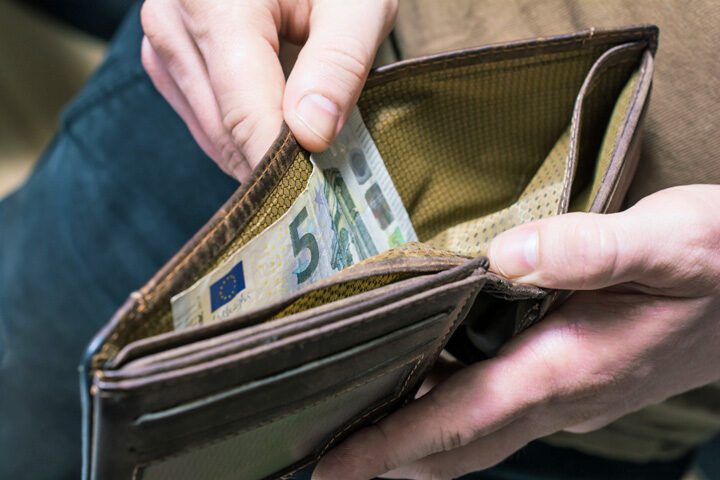Almost twenty percent of the Dutch population experienced an income drop in March as a result of the corona crisis. A slightly higher percentage (21 percent) also expects this decline in April. This is evident from a poll by the National Institute for Budget Information (Nibud).
Among them are mainly young people, the self-employed and flex workers. Most of them expect an income drop of up to 30 percent.
Vulnerable workers such as young people, flex workers and the self-employed are currently experiencing a relapse more often than people in paid employment. 16 percent of people in paid employment are concerned about their income, while the percentage for young people and the self-employed is 33 and 46 percent respectively. Young people and the self-employed are more than average concerned about keeping their job, falling income or even losing it altogether. Nibud director Arjan Vliegenthart: “Young people and the self-employed are the ones who, even when things are going well, have the greatest income insecurity. In times of crisis, they are the first to be hit the hardest.”
People are more concerned about their finances than usual. More than a third of all Dutch households expect that it will be difficult for them to make ends meet in the near future. If they can no longer pay bills, the premium for the health insurance is the first payment that fails. Almost 30 percent of all respondents do not have enough money to go without income for two months. People with an actual drop in income indicate that they are trying to make up for their deficits with savings and cutbacks. Less than 10 percent think of help from third parties (such as the municipality or requesting deferment of payment).
Nibud advises everyone with an (expected) drop in income Nibud step-by-step plan Keeping a grip on money worries to go through. The plan helps consumers to take the right actions with practical tools such as a sample letter. In addition, it is very important that the financial stress that people experience remains manageable. Sharing concerns and seeking help are important factors in reducing stress.



I wonder what Nibud bases its figures on.
If Nibud does not charge health insurance for fixed rates, then they are completely missing the point!
A self-employed person/entrepreneur who is now excluded has 0,00.
Maybe he can knock on the door of bbz and receive 1500 euros for 3 months
Business costs, rent fixed costs and home fasting costs continue and then mouths still have to be filled.
“More than a third of all Dutch households expect that they will have difficulty making ends meet in the near future. If they can no longer pay bills, the health insurance premium is the first payment to be lost.” It happens to the best of us not to read it, so here it is again 😉
Regarding help from the government for the entrepreneur, if you fall outside the boat, you are currently better off in the Netherlands than Thailand. In my opinion, entrepreneurs are not pessimists anyway and will find their way with exceptions.
As long as governments invest much more in war material than in defending against invisible enemies such as vulnerable ICT and natural human enemies such as diseases, then situations like this will become more common.
You should not think that at the height of this crisis, the ports, banks and energy supply will come to a standstill via hacker attacks.
The voters had the choice of which leaders they wanted to make the policy and with that the ordinary citizen is just as liable for this crisis so let's not forget that in the next elections.
As an entrepreneur, you can still apply for care allowance if your income is not enough. And if you already have this allowance, you can reduce your annual income in the allowances website in such a way that you receive the maximum allowance. You can use the calculation tool to see which income you receive which allowance. At most, you will receive almost as much allowance as the health care premium costs, except for about 10 euros.
That surcharge is really not that high, Ger-Korat. I think you are now forgetting the income-related premium and the deductible.
That's completely right, Erik, I only read medical costs and then the light in this box lights up. For the income-related health insurance contribution, you set your annual income to 0 with the Tax and Customs Administration, then you will be refunded any amount paid this year and you can see next year what you actually have to pay based on your income for the entire year. And at your own risk: if you have no money to hand and/or are low on cash, you may be able to apply for special assistance in the form of a loan. You can contact the municipality for this or otherwise request a payment arrangement for this from your health insurer. The bailiff no longer comes by because of the virus and evictions have also been suspended, look so far it's not too bad, fingers crossed that I can return to my other welfare state, Thailand. No government that takes care of me there, but real people.